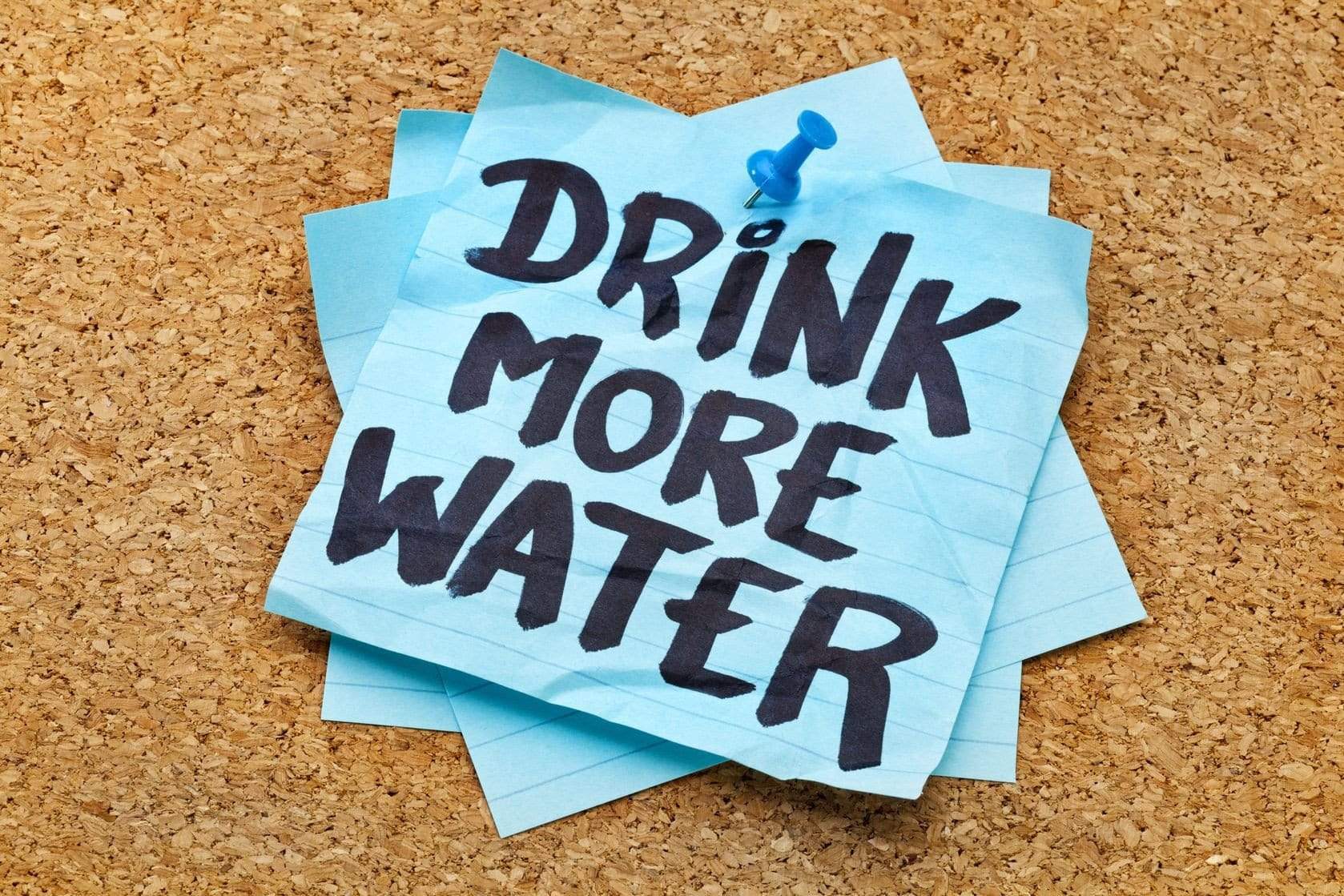The last two posts in this 3-part series took a look at:
- What Dehydration is, and
- What can happen under extreme circumstances.
In this third and final part we will take a look at some rehydration strategies and methods to keep athletes hydrated and performing effectively. As it was previously discussed a decrease in just 2% total body water can have a negative impact on physical performance, and if we think about exercising and how much we sweat, it's not hard to imagine how quickly we can lose 2% through respiration and perspiration. So how do we offset that and how do we keep our salts and electrolytes from being thrown out of balance?
Pre Exercise Hydration
First and foremost it is important to make sure we are properly hydrated before we start exercising. Otherwise, if we go in in an already dehydrated state, we are at a disadvantage from the get go, and it is difficult to rectify this once we start training. Which means one of our main concerns as athletes should be making sure we drink enough water throughout the day to meet our basic needs (approx 2-3L*). Luckily, dehydration can be easy to spot, as long as we know what we are looking for.Some common signs of mild dehydration include
- Increased thirst
- dry mouth or ‘sticky’ mouth
- decreased urine output
- darker/more yellow urine
- dry, cool skin
- headaches
- muscle-cramps
*The exact amount can vary between individuals based on a number of factors (individual size, age, our environment, illnesses etc)
Drink More Water.There is nothing fancy about this, yet it is something many of us struggle with. Luckily however, it often only requires a few small tweaks in our daily routine to change it up.- Track your daily water intake
- Carry a Water Bottle with you at all times
- Start and end your day with a large glass of water
- Drink a glass of water before every meal
- Add mint, cucumber or lemon to your water to make it taste more appealing
These are just a few suggestions (the list keeps going) and the best way to figure out what works for you is to play around with it.
Finally, let's talk about our hydration in the final hours leading up to exercise, as what we do in time period can have a huge impact on our success. According to the American College of Sports Medicine (AMCSM), it is recommended that at we drink 16-20 fl ounces of water 4 hours prior to exercise, and at least 8-12fl oz 10-15min prior to exercise order to ensure optimal performance.
Hydration During Exercise
Exercise can greatly increase the rate at which we lose water due to an increase in both perspiration and respiration; which means our fluid intake needs to increase accordingly. If a session will not exceed 60min, the AMCSM recommends an intake of 3-8oz of water every 15-20min; and for sessions lasting longer than 1 hour they recommend replacing water with a drink containing electrolytes and 5-8% carbohydrates.
Keep in mind, however, that these are general guidelines and may vary between individuals* and high humidity or temperatures can significantly increase our water requirements.*Individual needs can also be measured by weighing ourselves before and after exercise and using the difference to calculate (approximately) how much fluids we lose during a given session.
Post Exercise Hydration
During the first few hours post exercise, it is important to (re)hydrate to ensure our blood volume (and plasma levels) return to normal. In addition to restoring any lost water, it is also important that we replenish carbohydrates and electrolytes; especially if another bout of exercise will soon follow.
e.g. in between games, practices or WODs (if we plan on doing multiple in a day)
*Carbohydrates are the bodies’ preferred fuel; and when we exercise we deplete our stores of readily available carbs. If these stores are not replenished our bodies must turn to other/slower sources of fuel (e.g. breaking down stored protein - muscle).
Again, the exact amount needed to drink post-exercise can vary on a number of factors; and the best way to know exact needs is to calculate fluid losses (by weight) and hydrate accordingly*.*the ACSM recommendation is 20-24 fl oz per 1lb lost.
Now obviously not all of us have access to scales, and even if we do, the idea of weighing ourselves before and after every practice /game seems pretty tedious. However, by weighing ourselves just few time under different circumstances, we can get a pretty good idea of our losses/needs and create a ‘personal guideline’ to work with.
Final Notes
As I mentioned in part I of this series, we invest so much time, energy and resources in becoming better athletes (programs, supplements etc), but many of us overlook our dehydration, what it can do to our performance and how to stay hydrated let's put it into practice and see what happens.
Taryn Haggerstone is a Competitive Olympic Weightlifter, CrossFit Athlete and Coach based out of Vancouver, B.C., Active from a young age, Taryn’s passion for health and fitness led her to obtain an undergraduate degree in kinesiology and she has been working in the industry since graduating in 2012. Find her on instagram (@tarynemilyh), follow her twitter (@tarynhaggerston) and check out her blog www.gohardgetstrong.com
